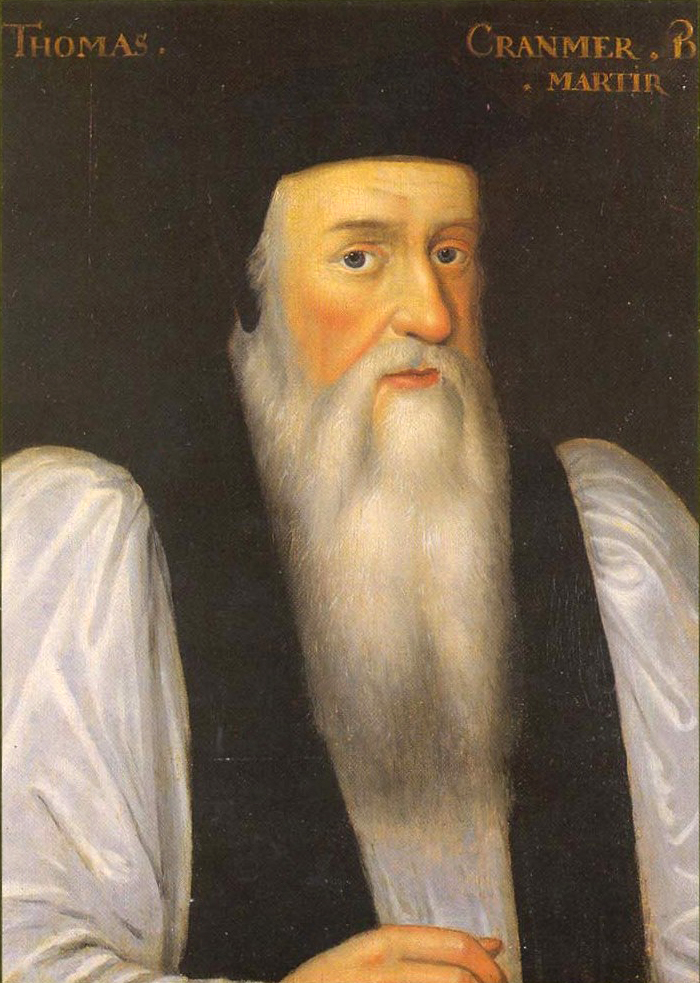Thomas Cranmer (1489-1556) was born in Aslockton, Nottinghamshire. He had much influence with Henry VIII and was appointed by Henry to the see of Canterbury in 1533. He declared Henry's marriage to Catherine of Aragon invalid.
The 1533 Act of Supremacy severed the ties with Rome and established a Church of England with Henry as the "supreme head".
Cranmer helped compile the Book of Common Prayer (BCP) which helped shape the broadly Calvinistic direction of the Church of England. The 1549 Act of Uniformity passed under the rule of Edward VI meant that only the BCP could be used in churches in the land, this meant that many of the Roman Catholic practices could not be practised.
It was Cranmer who appointed the European Calvinists Peter Martyr Vermigli and Martin Bucer as Regius Professors of Divinity at Oxford and Cambridge respectively. These he hoped would help train up Protestant priests.
It was Cranmer who appointed the European Calvinists Peter Martyr Vermigli and Martin Bucer as Regius Professors of Divinity at Oxford and Cambridge respectively. These he hoped would help train up Protestant priests.
Cranmer's 42 articles also helped push the CoE in a moderately Calvinistic direction. When Edward died and Mary I (bloody Mary) took to the throne there was a return to Catholicism and she attempted to eliminate Protestantism. In 1555 the year, Latimer and Ridley were burnt, Cranmer was tried for heresy and in 1556 he too was burnt at the stake.
It was during this time many left the country and were known as the Marian exiles. This meant that many came into direct contact with Calvinists in places such as Geneva, Zurich, Basel and Strasbourg.
It was during this time many left the country and were known as the Marian exiles. This meant that many came into direct contact with Calvinists in places such as Geneva, Zurich, Basel and Strasbourg.
Many of Cranmer's works are available here.


No comments:
Post a Comment